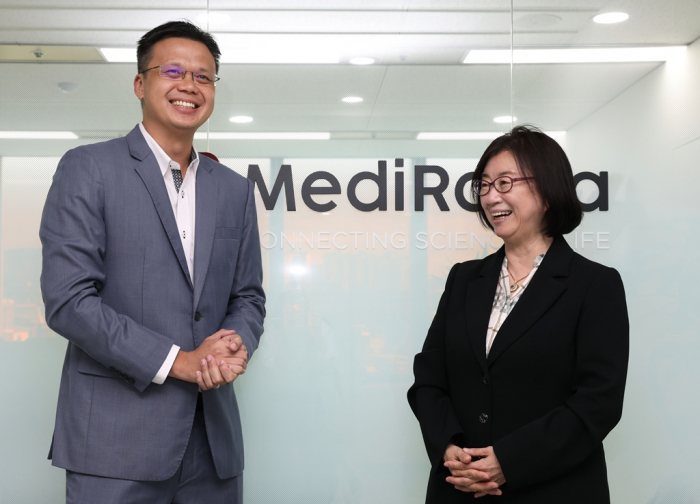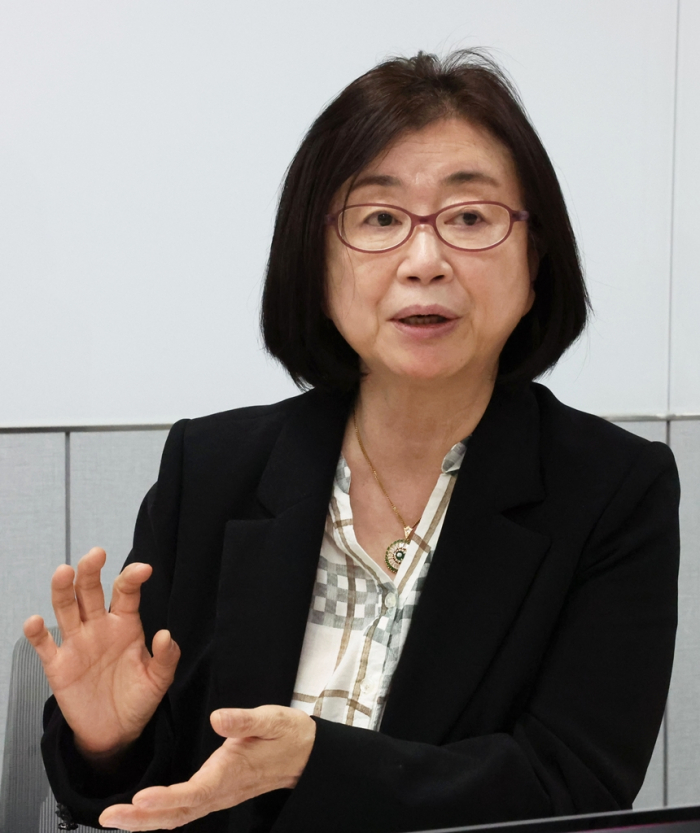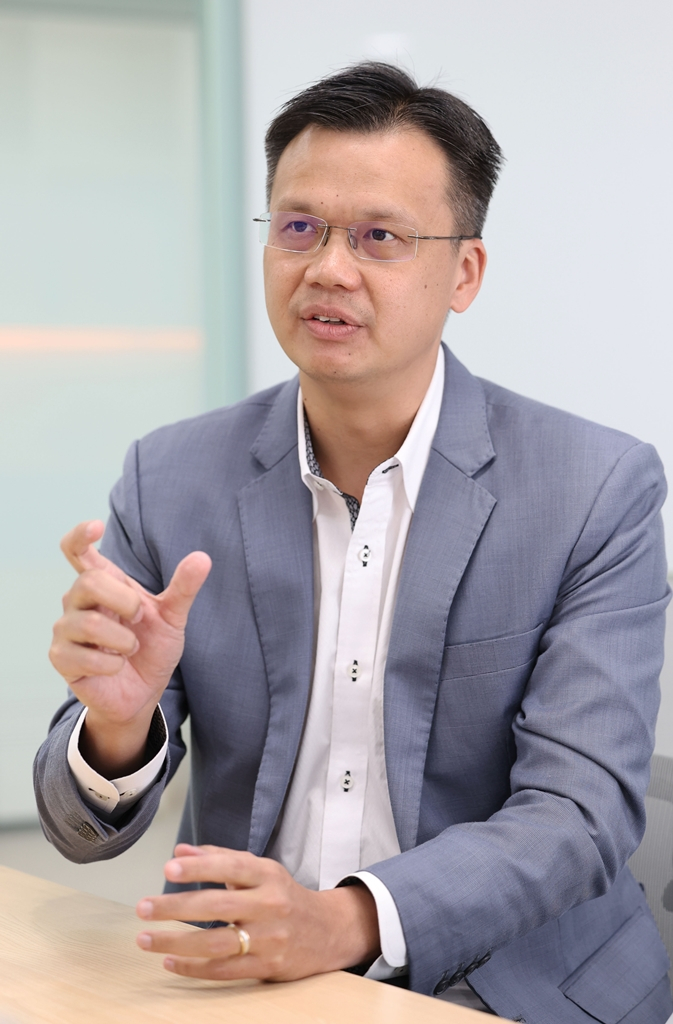LianBio teams with Korean MediRama to ease US biotechs' foray into Asia
LianBio, MediRama eye growing opportunities in China given easing regulations and economic growth
By Jun 17, 2022 (Gmt+09:00)
LG Chem to sell water filter business to Glenwood PE for $692 million


Kyobo Life poised to buy Japan’s SBI Group-owned savings bank


KT&G eyes overseas M&A after rejecting activist fund's offer


StockX in merger talks with Naver’s online reseller Kream


Mirae Asset to be named Korea Post’s core real estate fund operator



LianBio, a Nasdaq-listed biotechnology company, has joined hands with MediRama Co., a South Korean clinical development firm, to help promising biopharmaceutical makers in the US launch their businesses in Asia.
LianBio, based in New Jersey and Shanghai, chose MediRama as its partner for the clinical development of its compounds. The two companies are planning on expanding their collaboration for further clinical development in Asia.
LianBio develops and commercializes US biotech companies’ innovative compounds in Asia. Its founders saw an opportunity as promising biotech companies in the US and Europe faced difficulties in entering China and other Asian countries.
MediRama helps its biotech partners establish and carry out strategic plans for their clinical development, essential to the success of developing innovative drugs. When a client is at the stage of completing its pre-clinical studies and beginning clinical trials for a drug candidate, MediRama analyzes the preclinical data and establishes the best protocol for its clinical development. MediRama may partially invest in the clinical trials themselves, or help raise funds for the trials.
Such a business model is the first of its kind in Korea. LianBio is the second company that MediRama has collaborated with, following NE1, a US biotech firm.
“MediRama aims to be the best partner for clinical development particularly for Asia,” said its CEO Hanlim Moon.
Moon talked with LianBio’s Area General Manager for Asia Pacific Raphael Ho on difficulties in the US biotech sector’s entry into Asia and their strategies to help the industry make inroads into the growing market.

The following is the discussion between Moon and Ho:
▲ Moon: LianBio’s business model is very unique. It brings promising Western innovation to Asia and helps the drugs be developed specifically for Asia. MediRama is collaborating with LianBio in its clinical development targeted for the Asian market. Why is it difficult for US biotechfirms to enter the Asian market? I think this was the purpose of establishing LianBio.
▲ Ho: Especially in the US biotech sector, US scientists are most familiar with US FDA requirements, but not so familiar with the requirements in Asia. Investigation of Asian patients is also necessary, in order to make the medicines available for Asian patients. Small US biotech companies have limited funding and knowledge to consider diseases in the Asian region. So, it is not easy for them to start development for Asia.
▲ Moon: Asia is quite a big market like the US and European markets. Do you mean they don’t know how to commercialize for the Asian market?
▲ Ho: Yes. In the past, only 8% of new medicines available globally were available in China. The number was higher in Korea, but still, it was not 100%. Even today, it’s still not 100%. So, Asia is a very big market with great potential and opportunities for US biotech companies.
▲ Moon: It is quite interesting that there are great opportunities but companies do not actually know how to launch and commercialize a new medicine in Asia. Are there other companies with business models similar to LianBio?
▲ Ho: Not in the US, but there are a few in China. The founder of LianBio is a venture capital company called ‘Perceptive Advisors’. Though LianBio, the company name, sounds Asian, the company started in the US and came to China to do business. (The word “Lian (聯)” in LianBio means ‘bridge’ in Chinese)
▲ Moon: Actually, there is what we call a "drug lag" in the Asian market. There are medicines that are approved in US and Europe but not approved in China, Japan, and Korea. The lag is about 10 years. Now, many global pharmaceuticals are starting to do simultaneous development, which means they develop in US, Europe and Asia markets at the same time. Big pharmaceuticals can do this. However, it’s not easy for small biotech firms no matter how good their resources are, because they are not well aware of common diseases in Asia. For example in cancer disease, gastric cancer, cholangiocarcinoma, and lung cancer are very common cancers in Asia. However, many biotech companies are unable to establish development plans of those diseases in Asia because they don’t know them well.
▲ Ho: Some types of cancers, such as HCC, liver metastasis, and gastric cancer, are of high prevalence in Asia, much higher than that in the western world. I believe there is a high unmet need for Asian patients of these cancers. This is why LianBio and MediRama are collaborating and working together, to make innovative medicines available for these patients, to meet their unmet needs, particularly in high prevalence diseases in Asia.
▲ Moon: Currently, MediRama is focusing on clinical development collaboration for the Korean territory. If there is any interesting idea to develop for the Asian region, MediRama will not hesitate to share it with LianBio. MediRama’s ambition is to collaborate with US biotechs similar to LianBio, and bring their attention to the Asian markets. Our goal is not commercialization. Rather, we are focused on clinical development. We give the data back to the partners and we take a certain amount of payback.
▲ Ho: I expect there will be many more opportunities in Asia in the future. Our business model is especially promising because there are changes in China. China has become the second-largest pharmaceutical market in the world. China’s NRDL, which is equivalent to NHI in Korea, did not have any new inclusion for 8 years, from 2009 to 2017. In 2017, NRDL started a new review of drugs to be approved for national reimbursement. Every year since then, NRDL has updated the list. Development of new innovative drugs and reimbursement listing are the biggest factors for China’s rapid growth.

▲ Moon: China’s NMPA had a major regulatory reform in 2016, almost similar to the US FDA regulation. The review became open and transparent, and the speed of the review got very fast. Thus, a lot more drugs were approved and listed for reimbursement. This led to the amazing growth of the market. How do you think the Asian market will unfold in the future?
▲ Ho: There are three trends that take my attention. First, Asian people overall became much more affluent. This leads to increasing demand for the highest-end of healthcare and treatment. The second trend is that we are entering an era of personalized medicine now, not only in oncology but also for chronic diseases, respiratory diseases and cardiovascular diseases. The third trend is the changes in the governments and healthcare systems, especially in China. They are becoming more open to the development of innovative drugs. They are starting to try to find innovative ways to help patients to get access, whether it’s through public-private partnerships, or commercial insurance, or risk-sharing agreements.
▲ Moon: Do you think there will there be more companies like LianBio?
▲ Ho: Of course, many companies will start a business in China. However, it will not be easy. There are many big pharmaceutical companies that have not succeeded. For example in the oncology field, globally, the number one PD1 inhibitor is by Merk, Keytruda, but in China, the number one PD1 inhibitor is by Innovent Biologics, Tyvyt, which failed in the US review. So yes, China is an attractive market, but not an easy one to succeed in.
▲ Moon: That is right. There is a saying in China: “Nothing is easy in China but nothing is impossible”. Even if the Chinese market opens, it may not be easy to succeed in China. This is why you need companies like LianBio and MediRama.
Write to Jae-Young Han at jyhan@hankyung.com
Jongwoo Cheon edited this article.
-
 Business & PoliticsTrump Jr. meets Korean business chiefs in back-to-back sessions
Business & PoliticsTrump Jr. meets Korean business chiefs in back-to-back sessionsApr 30, 2025 (Gmt+09:00)
-
 Korean chipmakersSamsung in talks to supply customized HBM4 to Nvidia, Broadcom, Google
Korean chipmakersSamsung in talks to supply customized HBM4 to Nvidia, Broadcom, GoogleApr 30, 2025 (Gmt+09:00)
-
 EnergyLS Cable breaks ground on $681 mn underwater cable plant in Chesapeake
EnergyLS Cable breaks ground on $681 mn underwater cable plant in ChesapeakeApr 29, 2025 (Gmt+09:00)
-
 Business & PoliticsUS tariffs add risk premium to dollar assets: Maurice Obstfeld
Business & PoliticsUS tariffs add risk premium to dollar assets: Maurice ObstfeldApr 29, 2025 (Gmt+09:00)
-



